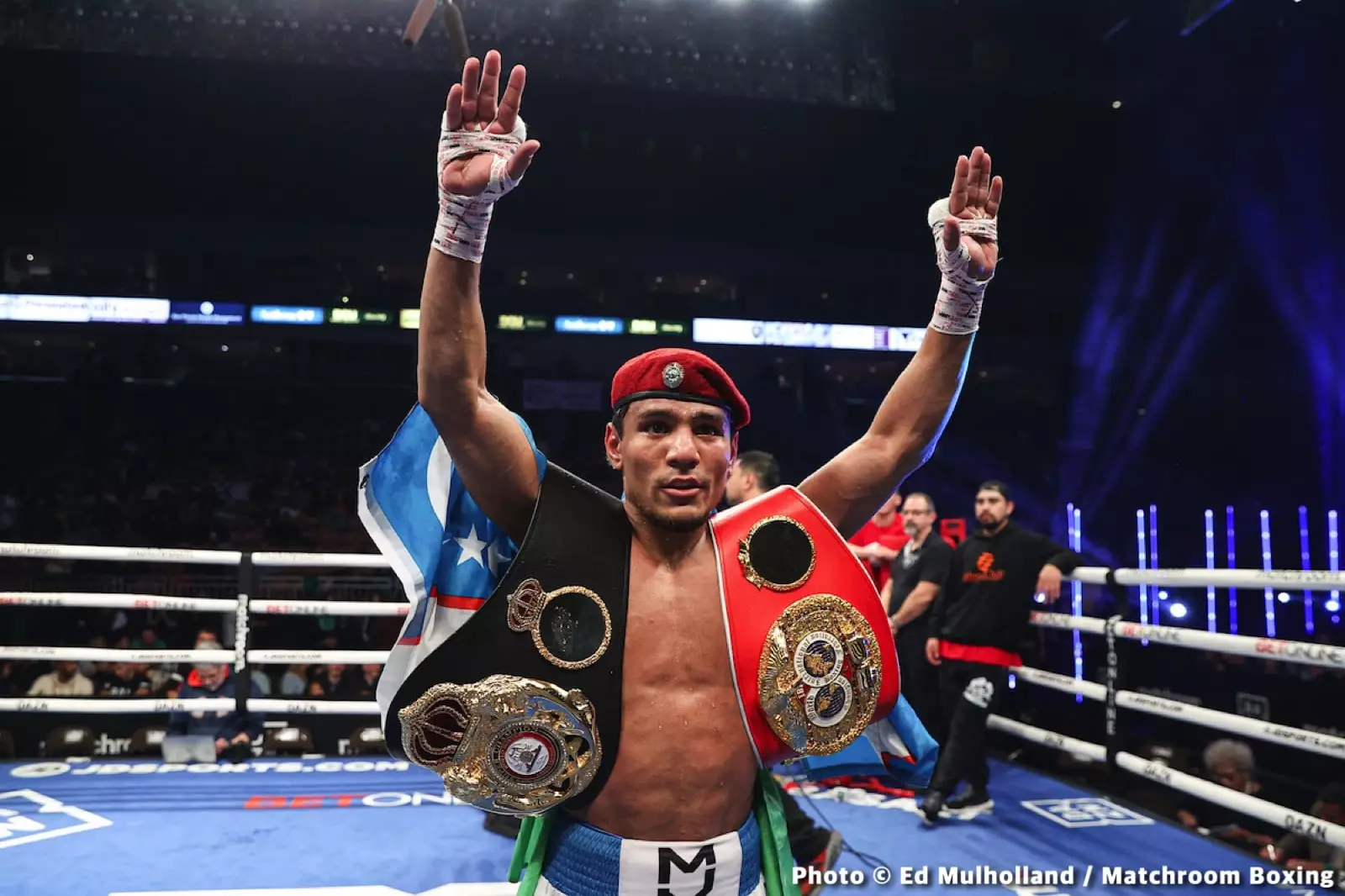In the highly competitive realm of professional boxing, few stories stand out as prominently as that of Murodjon Akhmadaliev. The Uzbek talent, who previously held the WBA super-bantamweight championship and is currently the WBA mandatory contender, has recently intensified his appeal for a bout against the reigning champion at 122 pounds, Naoya Inoue. As Inoue, often dubbed the pound-for-pound king, gears up to face his IBF mandatory Sam Goodman, the boxing community can’t help but question whether Akhmadaliev’s legitimate claim will finally earn him his deserved title shot.
Akhmadaliev’s discontent is palpable. As he shared in an interview with RingTV.com, the former WBA champion struggles to comprehend why Inoue is seemingly sidestepping a clash with him. He speculated whether it’s fear of competition or the complications brought forth by boxing politics—those “politricks” that Lennox Lewis famously criticized—that are keeping Inoue from taking the stage against him. With a record of 12 wins, one loss (7 KOs), and holding the distinction of a southpaw fighter, Akhmadaliev stands as a formidable opponent, especially given his lone defeat was a closely contested and controversial decision against Marlon Tapales.
Akhmadaliev has firmly stated his case: if Inoue wishes to avoid the challenge, he should vacate his title. The expected engagement between Inoue and Goodman may just represent yet another missed opportunity for a more thrilling matchup that boxing enthusiasts crave. The consistent pattern of Inoue opting for other challengers has led Akhmadaliev to feel frustrated and neglected, underlining a significant flaw in boxing’s regulatory framework where champions may evade mandatory defenses.
Naoya Inoue’s rise to prominence has been nothing short of phenomenal. His explosive style and technical precision have earned him accolades and a fearsome reputation. However, if the narrative of ducking opponents continues, it risks tarnishing his legacy. Boxing fans want to witness great champions face the best challengers to fully evaluate their greatness. Counting former champions like Akhmadaliev amongst those avoided might raise questions about Inoue’s legacy should he choose to bypass this fight yet again.
In a sport bereft of clarity due to convoluted politics and multiple sanctioning bodies, high-stakes fights often become a mishmash of negotiations and decision-making on the part of promoters and fighters. If Inoue is truly prioritizing a stay-busy fight with Goodman over defending against a respected mandatory contender like Akhmadaliev, one cannot blame the latter for feeling aggrieved.
In the world of sports, tension and pressure can lead to transformation; as Murodjon Akhmadaliev continues to apply that pressure, the outcomes may eventually lead to a showdown. He is not only advocating for his rightful shot at the title; he is challenging the entire framework of how championship fights are organized. By calling out Inoue, he is compelling the boxing community to reflect on the legitimacy and integrity of champion conduct. Akhmadaliev’s insistence on making his case public is a bold move, showcasing his tenacity as a fighter who refuses to settle for less than his due.
As 2024 approaches, suspense hangs in the air. Who will Akhmadaliev face in the ring upon his return? Will it be the man he has set his sights on, or another interim bout that keeps him dancing in circles? The outcome of Inoue’s next fight could potentially dictate whether Akhmadaliev’s name will rise alongside the elite fighters or remain a narrative of missed opportunities and frustrated ambition.
In the meantime, the boxing world watches with bated breath as Akhmadaliev prepares for his future, continuing to advocate for a fair chance in a sport that too often allows politics to overshadow passion. The fighter’s resolve to stand his ground reflects not only a personal ambition for glory but also a broader call for accountability and fairness in boxing, ensuring that all deserving contenders receive their rightful opportunities to shine.

